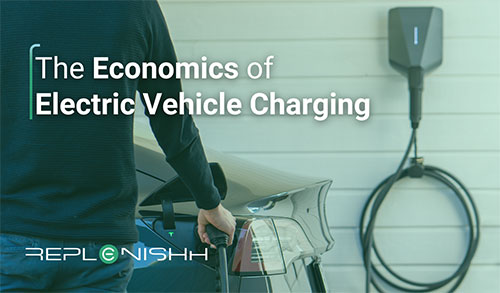
As electric vehicles (EVs) continue to revolutionise the transportation sector with their environmental benefits and energy efficiency, one common concern for potential EV owners is understanding the economics of electric vehicle charging. In this article, we will delve into the cost analysis and potential savings associated with charging an electric vehicle, helping you make an informed decision about transitioning to an EV.
Electricity rates can vary depending on the region, time of use, and utility providers. Kilowatt-hours (kWh) are a unit of energy that indicates how much energy you are using. Despite its name, it doesn't signify the amount of energy consumed by running a 1000-watt appliance for an hour, as different appliances consume different amounts of energy.
Home charging provides convenience and cost-effectiveness for your electric vehicle. Charging at home grants EV owners easy access to power, and it's essential to compare the cost of charging an EV at home versus refuelling a conventional vehicle with gasoline.
Estimating your energy consumption for charging your EV involves considering factors such as your vehicle's battery capacity, efficiency, and driving habits. We will also discuss the concept of "range anxiety" and guide how to plan your charging sessions effectively to alleviate these concerns.
To get a clear picture of the economics, we will explore through a step-by-step process for calculating charging costs. This will consider electricity rates, charging efficiency, and the total energy required. Use examples to illustrate the cost comparison between charging at home and using public charging infrastructure.
Exploring the benefits of TOU plans offered by utility companies is crucial. These plans provide lower electricity rates during off-peak hours. It is of the utmost importance to understand peak demand periods and how you can leverage cheaper electricity rates to charge your EV, resulting in significant savings over time.
For the environmentally conscious, it is important to explore the opportunity to reduce your carbon footprint by charging your EV with renewable energy sources, such as solar panels or wind turbines. There are several ways to optimise energy savings and have a positive environmental impact by utilising clean energy solutions to help provide optimal charging solutions.
One of the incentives available to users is the Electric Vehicle Homecharge Scheme. This enables individual buyers of eligible EVs to receive a grant for up to 75% (capped at £350, inc. VAT) of the total purchase and installation costs of one EV charger for their home. Company cars and leased cars are also eligible.
The Workplace Charging Scheme (WCS), which is based on vouchers, can pay up to 75% of the cost of purchasing and installing EV charging stations at workplaces. The grant covers up to 40 charging points and a maximum discount of £350 per socket. Visit the official government website to apply and learn all the requirements for the grant, including a list of the information you must submit. After submitting your application, you will receive a voucher that is valid for 180 days.
Smart charging solutions are becoming increasingly popular. They allow users to schedule charging during off-peak hours or when electricity rates are lower, resulting in substantial savings over time. Through the Replenishh website, you can read further on our smart charging solutions and load management capabilities through our previous blogs for more information.
Regenerative braking is an innovative technology used in electric and hybrid vehicles that allows them to recover and store energy during braking or deceleration. This energy recovery system is designed to increase the overall efficiency of the vehicle and extend its driving range.
Efficient driving habits play a significant role in extending your driving range and reducing charging needs. We'll highlight techniques such as smooth acceleration, anticipation of traffic flow, and avoiding excessive use of auxiliary systems. Adopting these habits not only contributes to cost savings but also enhances your EV's overall performance.
Transitioning to an electric vehicle offers not only environmental benefits but also economic advantages. By understanding the cost analysis and potential savings associated with EV charging, you can make an informed decision and optimise your charging habits to maximise savings.
From leveraging off-peak electricity rates and integrating renewable energy sources to exploring incentives and adopting energy-efficient driving techniques, the economics of electric vehicle charging can be both rewarding and cost-effective. Embrace the future of transportation while enjoying the financial benefits of electric vehicle ownership. It's a win-win for your wallet and the environment.
If you are interested in joining the trend and becoming an EV installer today. Replenishh is the way. Offering full expert advice, a wide selection of charging products, exclusive pricing, and tips, look no further, become an EV Charging installer today.
Post a Comment